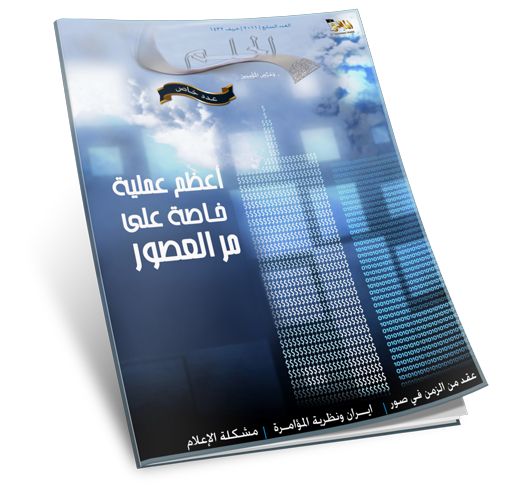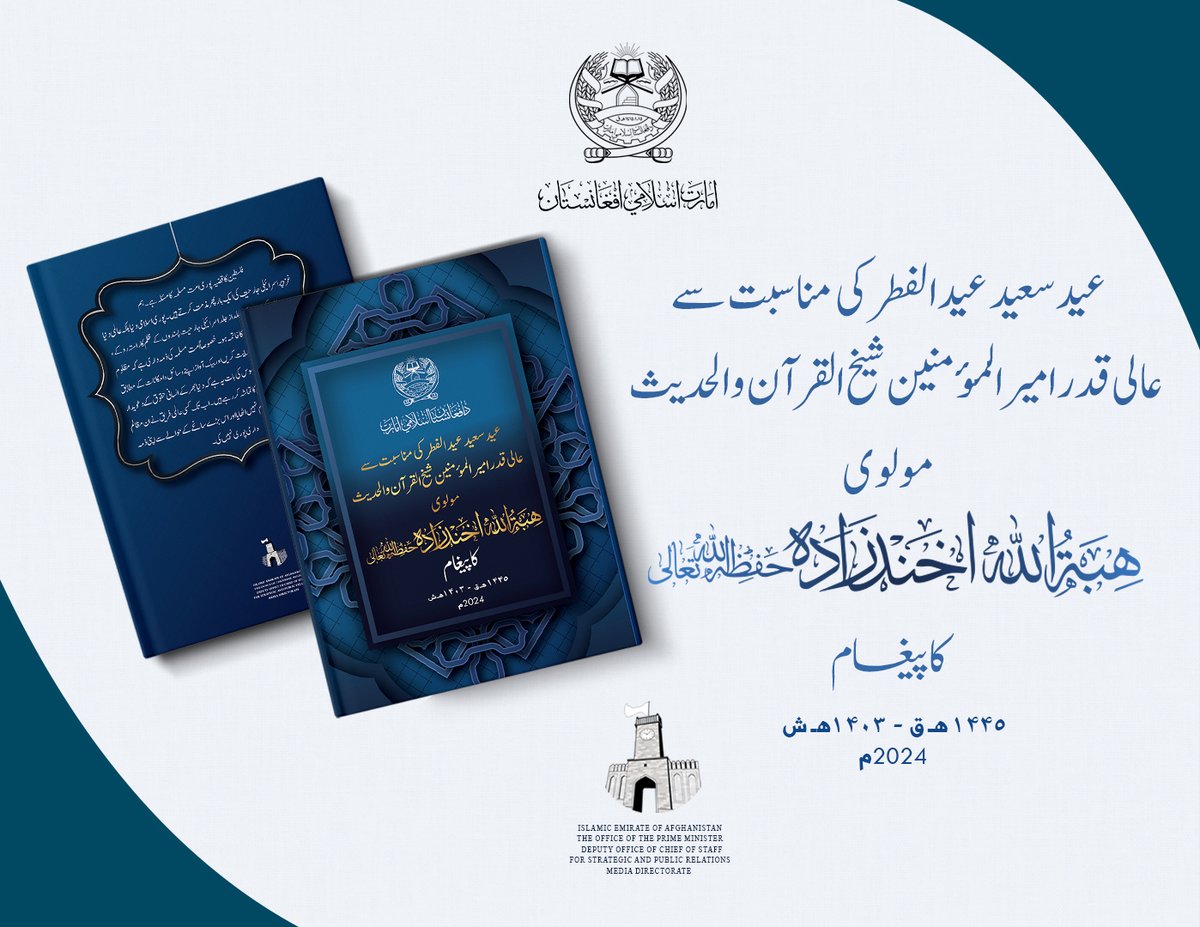Search Results for: inspire
al-Qā’idah in the Arabian Peninsula’s al-Malāḥim Media releases Inspire Magazine Issue #7
UPDATE 1/2/12: Here is an Arabic translation of the below English magazine:

Click the following link for a safe PDF copy: Inspire Magazine 7 (Ar)
________
—
NOTE: This issue is their 9/11 special. For previous issues see: #6, #5, #4, #3, #2, and #1.
—

Click the following link for a safe PDF copy: Inspire Magazine 7
______
al-Qā’idah in the Arabian Peninsula’s al-Malāḥim Media releases Inspire Magazine Issue #5
UPDATE 5/6 2:32 PM: Here is an Arabic translation of Inspire #5:

Click the following link for a safe PDF copy: Inspire Magazine 5 (Ar)
_____
—
UPDATE 5/1 11:54 AM: The Anṣār al-Mujāhidīn Russian Forum has translate Inspire #5 in Russian:
Click the following link for a safe PDF copy: Inspire Magazine 5 (Russian)
_____
—
UPDATE 3/30 2:38 PM: The forums have already translated Anwar al ‘Awlaqī’s article “Tsunami of Change” into Arabic:
Click the following link for a safe PDF copy: Anwar al ‘Awlaqī — “Tsunami of Change” (Ar), Inspire 5
_____
—
NOTE: Previous issues: #4, #3, #2, and #1.
—
Click the following link for a safe PDF copy: Inspire Magazine 5 (English)
_____
al-Qā’idah in the Arabian Peninsula’s al-Malāḥim Media releases Inspire Magazine Issue #4
UPDATE 2/8 11:03 AM: Here is an Arabic translation of issue four of AQAP’s English language magazine Inspire:

Click the following link: Inspire Magazine 4 (Ar)
—
UPDATE 2/7 11:54 AM: Here is a Russian translation of issue four of AQAP’s English language magazine Inspire:

Click here: Inspire Magazine 4 (Russian)
—
NOTE: Here is the first, second, and third issue of Inspire Magazine. Below is a brief summary of what is in this magazine. When I have more time I hope to read the content more in depth and be able to dig deeper into this.
The magazine begins with a letter from the editor, Samīr Khān, about the Shi’a in their midst, as well as a reprint of AQAP’s statement following the car bombing against the Ḥūthīs this past November titled “Statement on the Operations of Defense for the People of the Sunnah.” Then after a series of pages of quotes from friends and foes Khān pens an article reiterating the importance of farḍ al ‘ayn (individual obligation) for jihād. After this, there is a reprint of part of Adam Gadahn’s recent video message from October titled “The Arabs And Muslims: between the Conferences of Desertion .. and the individual Duty of Jihād,” which I analyzed here. Following this there is an article from Abū Zūbayr ‘Adīl bīn ‘Abdullah al-Abāb, AQAP’s chief religious authority, where he answers questions about targeting non-Muslims and Yemeni soldiers. Muḥammad al-Ṣana’ānī follows this up with an article on Roshonara Choudhry who stabbed the UK MP Stephen Timms, and Taymūr ‘Abd al-Wahāb who was responsible for the recent attack in Stockholm. After this Abū Khowla pens a piece titled “Which is Better: Martyrdom or Victory?” Then there is a roundup of the recent jihadist activities in Abyan by Abū Zakarīā al-Erītrī, which confirms that there are members of AQAP from Eritrea. After this, there is a long excerpt from Abū Muṣ’ab al-Sūrī’s magnum opus The Global Islamic Resistance Call. Then in the section titled Open Source Jihād it details how to burn down a building, training with an AK-47, and advice for those that want to help with AQAP’s media outlet al-Malāḥim Media, which includes:
- Archiving
- Hear the world
- Your articles
- News flash
- Graphics
- Translations
Following this they reprint sections of Shaykh Abū Muṣ’ab Moḥammed ‘Umayr al ‘Awlaqī’s essay titled “Why I chose al-Qā’idah” who was killed in late 2009. After this is the feature article in the entire magazine, which is highlighted on the cover of it from Anwar al ‘Awlaqī titled “The Ruling of Dispossessing the Disbelievers Wealth in Dār al-Ḥarb [the Abode of War].” This is a continuation of advice regarding the economic jihād, which AQAP boasted about in the third issue of Inspire magazine and written about by Daveed Gartenstein-Ross in Foreign Policy following the failed UPS parcel plot. I would be interested to hear his further thoughts about this in light of this new article from ‘Awlaqī. After ‘Awlaqī’s article, there is one from Hazīm Nūr titled “The Call of the Qur’ān” about the importance of the concept tawḥīd (oneness of God), which is one of the most fundamental concepts in Islām. Inspire magazine concludes by recapping recent releases from al-Malāḥim Media including: Issue #15 of AQAP’s Arabic language magazine Ṣadā al-Malāḥim, “Martyrs of the Arabian Peninsula #4 – Abū Hammām al-Qaḥṭānī (Nāyīf bin Muḥammad bin Sa’īd al-Kūdurī al-Qaḥṭānī),” Shaykh Ibrāhīm bin Sulaymān al-Rubaysh’s audio message: “Between Islamists and Liberals”, an audio message from Shaykh Abū Zūbayr ‘Adīl bīn ‘Abdullah al-Abāb: “We Responded to the Sharī’ah of God, not the Laws of ‘Alī Ṣāliḥ”, a tribute to Zayyid al-Daghārī al-’Awlaqī by Shaykh Ibrāhīm bin Sulaymān al-Rubaysh, and a video titled “By the Lord of the Ka’abah, I Triumphed [Part 2]” among others. After this it tells the reader how to get in contact with Inspire magazine and like the previous issue it also lists Muslim prisoners.
—
Click here: Inspire Magazine 4
New video from Ḥarakat al-Shabāb al-Mujāhidīn's media outlet al-Katāi'b: "Message to the Ummah and Inspire The Believers"
NOTE: Christopher Anzalone has tweeted some interesting information about this video thus far:
Harakat al-Shabab al-Mujahideen’s new video, “And Incite the Believers,” features fighters from abroad, mostly it seems of Somali descent.
The video clearly states in the intro that it is a recruiting video for those abroad. It features a number of foreigners & diaspora.
Among those quoted in the video are Saleh ‘Ali Saleh al-Nabhani (killed in U.S. military strike Sep. 14, 2009) and Abu Yahya al-Libi.
At least some non-Somali diaspora foreign fighters appear, including one from Pakistan and one from Sudan (a guess as he speaks Arabic).
With regard to a number of the other “foreigners” it’s unclear whether they are from the Somali diaspora or are “foreign” foreign.
The “foreign fighters,” diaspora and “foreign” foreign, hail from Sweden, Britain, Tanzania, Sudan, Kenya, and Pakistan.
—
al-Qā’idah in the Arabian Peninsula’s al-Malāḥim Media releases Inspire Magazine Issue #3
UPDATE: Here is an Urdu translation of AQAP’s Inspire Magazine:
Click here: Inspire 3 (Urdu)
—
NOTE: See J.M. Berger’s quick take here. Here is the first and second issue of Inspire Magazine. For more on the cargo plot, see AQAP’s statement where they claim responsibility for it.
—
Click here for a safe Pdf copy: Inspire Magazine 3
al-Qā’idah in the Arabian Peninsula's al-Malāḥim Media releases Inspire Magazine Issue #2
UPDATE 3: Below is an Arabic translation of the second issue of Inspire Magazine via Anṣār al-Mujāhidīn Arabic Forum, which was released in English on October 11. It took two and a half months between the release of the first Inspire Magazine and it being published in Arabic. This time, it only took a month and a half. Not sure if it means anything, but thought it should be mentioned.

Click here: Inspire Magazine 2 (Arabic)
—
UPDATE 2: Ribāṭ Media has translated Samīr Khān’s article “I am proud to be a traitor to America” into Urdu.
Click here: Samir Khan — I Am Proud to be a Traitor to America
—
UPDATE: Check out the analysis of Inspire from the following individuals: Christopher Anzalone, Gregory D. Johnsen, Jarret Brachman, Aaron Weisburd, Thomas Hegghammer, Yassin Musharbash, Brian O’Neill, and J.M. Berger.
—
NOTE: al-Malāḥim Media, al-Qā’idah in the Arabian Peninsula’s (AQAP) media outfit, released the second issue of the English language magazine called “Inspire,” which features an essay by Samīr Khān titled “I am proud to be a traitor to America” as well as a new article from Anwar al ‘Awlaqī titled “The New Mardin Declaration.” This for all intents and purposes confirms that Khān is behind the magazine, which many individuals believed when the first issue was released June 30. The first issue featured interviews with the amīr (leader) of AQAP Abū Basīr (Nāṣir al-Wūḥayshī) and Anwar al ‘Awlaqī. After the magazines success, it was translated into Arabic September 10. Unlike the first issue, there was no corruption in the file when the second one was released.
The release of a second magazine further illustrates the rising influence of Americans in al-Qā’idah in the Arabian Peninsula as well as their continued outreach to the English-language Muslim world. Further, it shows the diversity of content released by al-Malāḥim Media. In the past month for example, al-Malāḥim Media has released a new biography in their martyrs series, a new video (“By the Lord of the Ka’abah, I Triumphed [Part 2]”) that highlighted ‘Abdullah Haṣan al-’Asīrī, who attempted, but failed to kill Saudi Arabian prince Muhammad bin Nayef in August 2009, who is in charge of the de-radicalization of jihadists, and an audio tribute by Shaykh Ibrāhīm bin Sulaymān al-Rubaysh for Zayyid al-Daghārī al-’Awlaqī. For more on al-Malāḥim Media, read Christopher Anzalone’s recent analysis of it in comparison to al-Qā’idah Central’s media outlet As-Saḥāb. When I get the chance to read Khān and ‘Awlaqī’s articles as well as anything else of interest, I will try and provide some analysis. For now, below is the second issue of Inspire Magazine.
—

Click link to download a safe PDF version of the magazine: Inspire Magazine 2
al-Qā’idah in the Arabian Peninsula releases its first English language magazine “Inspire”
UPDATE 7: Inspire Magazine has been translated into Arabic as an ‘Īd al-Fiṭr gift to the Muslim ummah (community) by the Arabic Anṣār al-Mujāhidīn Forum.

Click here: Inspire Magazine Arabic
—
UPDATE 6: The Investigative Project on Terrorism weighs in on “Inspire Magazine” and its potential negative effects on radicalization.
—
UPDATE 5: Katherine Zimmerman of the American Enterprise Institute’s Critical Threats Project explains the implications of AQAP’s “Inspire Magazine”.
—
UPDATE 4: Aaron Weisburd of the Internet Haganah provides his take on the full release of AQAP’s “Inspire Magazine”.
—
UPDATE 3: After 12 days,AQAP releases the full version of “Inspire Magazine” without corruption. Also, checkout Jarret Brachman’s quick take analysis of the new magazine.
Click here: AQAP – Inspire Magazine Volume 1 – UNCORRUPTED
—
UPDATE 2: J.M. Berger of IntelWire along with Thomas Hegghammer of Jihadica posted new blog entries detailing past English language magazines by jihādī and the continued lack of understanding by the mainstream media when reporting on the “Inspire” magazine.
—
UPDATE: After the forums released the new English language magazine “Inspire” within an hour or so they took it down since the pdf file was corrupted. The first three pages — the table of contents — was fine, but afterwards the text was gibberish. I am still keeping this corrupted file up so people can see what it looked like. For more on why the file was corrupted and taken down check out the Internet Haganah’s analysis. Also, it is worthwhile to read J.M. Berger of IntelWire’s critique of the US media coverage of the “Inspire” magazine release.
—
NOTE: al-Malāḥim Media, al-Qā’idah in the Arabian Peninsula’s (AQAP) media outfit, released a new English language magazine called “Inspire”, which features interviews with the amīr (leader) of AQAP Abū Basīr (Nāṣir al-Wūḥayshī) and Anwar al-‘Awlakī.
—
Original corrupted file (won’t harm your computer, gibberish after a few pages): AQAP – Inspire Magazine Volume 1
New statement from the Islamic Emirate of Afghanistan’s Mawlāwī Hībat Allah Akhūnd Zādah: “Congratulatory Message On the Arrival of the Auspicious ‘Īd al-Fiṭr”

بسم الله الرحمن الرحیم
الحمد لله نحمده ونستعينه ونستغفره ونتوب إليه ونعوذ بالله من شرور أنفسنا ومن سيئات أعمالنا من يهده الله فلا مضل له ومن يضلل فلا هادي له وأشهد أن لا إله إلا الله وحده لا شريك له وأشهد أن محمدا عبده ورسوله. أما بعد:فقد قال الله تعالي: قَدْ أَفْلَحَ مَنْ تَزَكَّى (۱۴) وَذَكَرَ اسْمَ رَبِّهِ فَصَلَّى (۱۵) سورة الأعلی
To the Faithful and Mujahid Nation of Afghanistan and All the Muslims Around the World!
I would like to extend my heartfelt congratulations on the arrival of the auspicious Eid-ul Fitr, may Allah Almighty accept your fasting, worship, prayers and sacrifices.
Dear Brothers!
First of all, we should thank Allah Almighty for bestowing upon us the Islamic Sharia system, through which life is guided by righteousness and sacred principles. By the grace of Allah, the month of Ramadan passed in a peaceful atmosphere, we will perform the Eid-ul Fitr prayer, and we will spend these auspicious days with joy and in a peaceful environment.
For every blessing for which gratitude is expressed, Allah Almighty increases it, if someone is ungrateful for the blessings, then Allah Almighty warns of the possibility of punishment, as ingratitude holds dire consequences, therefore, I urge my Muslim brothers that we should not overlook expressing gratitude to Allah Almighty, and let us all strive to be grateful servants of Allah.
Allah Almighty has granted us the Islamic Sharia System, peace, brotherhood and unity, all of these are blessings from which we were deprived of for decades, now, that Allah has reminded us these blessings, it is incumbent upon us to express gratitude, to acknowledge them, to support them, to reform them accordingly, and to strive for goodness.
Scholars bear a great responsibility to guide all people and officials of the Islamic Emirate to the worship of Allah, they must keep them reformed, provide good counsel, offer advice, encourage goodness, and continuously invite them to worship.
It is the responsibility of mosque imams (scholars) to constantly guide their followers, their children and community towards improving and nurturing of their beliefs, actions and morals. They should remain vigilant every day, unceasingly work towards reform, especially amidst contemporary tribulations.
Enforcement of Islamic Sharia
In Islam, the sacred pillar of Jihad in the path of Allah is a crucial means to implement Islamic Sharia Law. Additionally, safeguarding the sacrifices made by Mujahedeen and ensuring the protection of the community are fundamental goals. Various strategies were employed to achieve these objectives, including ensuring justice, implementing Sharia -based legal boundaries and punishments, and ensuring adherence to the principles of Sharia. Furthermore, it is imperative to resist oppression and defend the oppressed.
In line with Sharia law, the Ministry of Vice and Virtue carries out its duty to enforce the promotion of good deeds, prevention of evil, and handling complaints against wrongdoing, the councils of scholars in the provinces are a means of implementing Sharia rules, providing good counsel, fostering unity among scholars, and strengthening trust between the Islamic Emirate and the Afghan nation, furthermore, officials are also obligated to obey and the establishment of such councils at the district and village level is underway.
It is the responsibility of every Muslim to adhere the courts and be satisfied with their judgements, as well as to implement the directives and recommendations of the functionaries of the ministry of vice and virtue and extend necessary cooperation in carrying out the duties properly.
Education
For the religious and modern education of the new generation, the Ministry of Education has broad structures in all provinces and districts and it has operationalized hundreds of religious and scientific centers. In addition, orphanages are also established in various provinces and a number of districts aimed at providing daily care, education and sponsorship for all orphans, which are being managed by an independent administration.
It is the responsibility of every Muslim to provide good upbringing, education, and opportunities for their children, so that they should attain religious knowledge.
Security
Over the past decades, Afghanistan has faced numerous challenges in terms of insecurity, lawlessness, and adversities. After many struggles and sacrifices, Allah Almighty has given us a great reward to ensure security throughout the country as well as, ensuring both visible security and internal peace.
Visible security refers to the safety and protection of lives, property, and dignity of the people within a society, and internal peace means freedom is preserved, and it is indeed a great blessing from Allah Almighty. Now, let us all strive and collaborate with security officials in every way possible, this is a responsibility upon all of us, mandated by Allah Almighty, to cooperate with each other for the betterment of society and to not engage in any actions that may cause harm to others.
Let us combat the mischief-makers, as you bear responsibility for ensuring security, if someone is causing harm unlawfully, it is the responsibility of every Muslim to refrain from supporting them. If you do not cooperate with security officials, you might be complicit in their wrongdoing. Pay attention to security in your city, village, and home, and provide full cooperation wherever needed.
Economy
In the Islamic system, it is a Sharia responsibility to improve the economy of the people, the Islamic Emirate strives to meet the needs of its people within the limits of possibility, encouraging the establishment of businesses and public welfare activities, in order to provide employment and economic opportunities.
In addition, do not sit still! Try to provide opportunities for work individually and collectively, establish new businesses, promote agri-business, create opportunities for industrial work, collaborate with the government, and strengthen the economy of the country, the Islamic Emirate will also create a conducive environment, enabling a fair ground for farmers, craftsmen, and factory owners to establish and grow their businesses, and as a result of joint efforts our economy will grow, have faith in Allah, and pursue all lawful means to earn your sustenance, avoid unlawful transactions, earn halal income, and do not be greedy for others!
Deal Within the Framework of Sharia
The Islamic Emirate of Afghanistan, in line with Islamic principles, seeks good relations with others based on mutual respect and understanding, and urges everyone not to entertain any doubts regarding the good intentions and sincerity of the Islamic Emirate. Our commitment and dedication are firm, and we expect and demand respect for Afghanistan’s sovereignty, integrity, and dignity, ensuring that any disagreements are addressed through dialogue and with mutual respect.
In the realm of international relations among all countries, we aim to pursue a balanced and economically-focused policy in the light of the holy religion of Islam. We seek diplomatic and economic relations with all nations, ensuring that Afghanistan’s security, stability, and prosperity serve as a favorable opportunity for others, we urge international community to maintain good relations with the Islamic Emirate, and adopt strategies in the spirit of mutual benefits.
The ministry of foreign affairs of the Islamic Emirate is tasked to foster an atmosphere of confidence and peace among all, especially within the Islamic countries.
The Islamic Emirate’s foundation lies on the principles of Islam and the well-being of the Muslim community. We share common faith, beliefs, and convictions, binding us together. In times of joy and sorrow, we stand united, supporting each other with equal participation and collaboration, leveraging our abilities to the best of our capabilities.
Indeed, creating a common ground and resolving our shared challenges is essential. The Islamic Emirate aims to foster an environment conducive to achieving this goal.
Palestine
The issue of Palestine is indeed a concern for the entire Islamic Ummah. We stand in solidarity with the people of Gaza against Israeli aggression and occupation. It is incumbent upon the Islamic Ummah to address the plight of the oppressed Palestinians and to collectively condemn any form of injustice or aggression perpetrated by Israeli invaders. We must mobilize our resources and support Palestine in every possible way to alleviate their suffering and work towards a just resolution of the conflict.
It is regrettable that the international community often falls short in effectively addressing the injustices faced by the people of Palestine. Despite claims of upholding human rights, there is a lack of meaningful action to curb the ongoing oppression and to hold perpetrators of these injustices accountable. This is indeed a source of profound sorrow, and it underscores the urgent need for all responsible parties to fulfill their obligations in addressing this grievous situation.
Prohibition of Drug
The Islamic Emirate is committed to fulfilling its Islamic and Sharia obligations in the country by strictly enforcing the prohibition of narcotics and by taking effective measures to eradicate the cultivation, production, and trafficking of illicit use of drugs. The Islamic Emirate is determined to carry out this important task with firm resolve and decisiveness, seeking support and cooperation from its own communities, emphasizing the need for a drug-free Afghanistan.
Furthermore, in Kabul and provinces, efforts are underway to rehabilitate drug addicts and ensure their safe return to society. The Islamic Emirate takes this
Check out my new article for the ISIS Reader website: “Tunisians of the Iraq Jihad and How That Set the Stage for the Syrian Jihad”
Nestled into the ISIS Reader: Milestone Texts of the Islamic State Movement is a brief mention of a Tunisian that went by kunya Abu Usamah al-Tunisi. Based on primary source research for my own book, Your Sons Are At Your Service: Tunisia’s Missionaries of Jihad, Abu Usamah came to Iraq at the latest in early 2004 and fought in the Battles of Fallujah where his close relationship with both Abu Mus’ab al-Zarqawi and Abu Hamzah al-Muhajir led to his rise in the organization: first as the military leader of Baghdad’s southern belt and later as the leader of Majlis Shura al-Mujahidin (MSM)/the Islamic State of Iraq’s (ISI) entire foreign fighter operation. His closeness to al-Zarqawi and al-Muhajir might also help explain why Abu Usamah appeared as one of the masked individuals in the video that showed the beheading of the American Nicholas Berg in May 2004. More importantly, the fact that Tunisians held high-level positions, especially ones related to foreign fighting, helps explain why so many Tunisians would later become connected to these networks that helped recruit people to fight in Iraq, Libya, and Syria after 2011. Abu Usamah would eventually be killed in a U.S. airstrike in the city of Musayyib, in Babil Province, on September 25, 2007, along with a number of other senior ISI leaders.
Although many Tunisians partook in jihadism prior to the Iraq war, the war inspired a new generation and cadre of individuals. For example, Hasan al-Brik, who would become Ansar al-Sharia in Tunisia’s (AST) head of dawa after the 2011 Tunisian revolution, traveled to Iraq in 2003. Like many others, he did not actually make it into Iraq, but rather took charge of a safe house in Syria where individuals were vetted before travelling to Iraq. For the Tunisians who survived, many, including al-Brik, would be arrested in Syria (and elsewhere) and rendered back to Tunisia to be placed into its prison system. Tunisia’s prisons in the seven to eight years before the revolution would be crucial for bringing together the first generation of Tunisian jihadis associated with Afghanistan and Europe-based networks and the second generation more associated with Iraq and the GSPC/AQIM networks. This prison exchange between the first and second generations of Tunisian jihadis would provide AST’s base for activities after the 2011 revolution and later the foreign fighter mobilization to Iraq, Libya, and Syria to either join Ansar al-Sharia in Libya, Jabhat al-Nusrah, or the Islamic State.
My book provides a lot of details on the Tunisians that joined the Iraq jihad, around 5,000 words in all. Due to that length and the focus of the ISIS Reader on primary sources, this post will highlight some details based strictly on research derived on this network from primary sources. However, if you want the entire picture, chapter four of my book gets into the entire history and story in full.
Click here to read the rest of this post.

